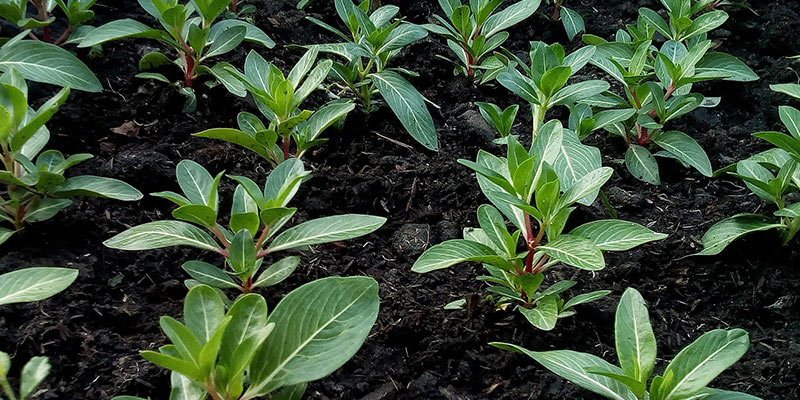
Garden soil is one of the primary factors that helps in proper plant growth in pots and planter boxes as well as in the enhancement of production in well-developed vegetable gardens.
The soil of your garden should not be treated as a means of just supporting the plants, rather its role is much more substantial than that. The soil feeds the plants with water and nutrients while at the same time it provides the proper conditions for development of the root system (drainage, ventilation, etc.).
Knowing the importance of soil in gardening and plant growth, the first thing to do before setting up your garden is to choose good soil or improve the existing one.
Importance of Soil Renewal
Soil quality depends on its mechanical composition (i.e its structure and its compositions in clay and sand content), its chemical composition (ie its nutrients and organic content) and its pH. These characteristics are not fixed but change over time.
Plants, as they grow up, consume large amounts of nutrients that are not replenished, while irrigation, root growth and the influence of other factors alter the structure of the soil. So the initial choice of good soil for your garden is not enough for proper plant growth in the long run.
For this reason, soil renewal is necessary and must be done every year at the beginning of spring or at the end of autumn.
For vegetable gardens or for gardens with seasonal flowers, the soil should be cleaned from any remains of the previous crop at the beginning of each growing season. Then, new soil should be added with compost or manure and then flattened in order to accept the new plants.
In a developed garden, soil renewal should be done locally, near the root system of shrubs and trees. At these points, soil is added where necessary but mainly it should be enriched with compost or manure in order to strengthen its organic substance and its nutrient reserves.
Characteristics of good soil
Now let’s discuss what we mean by “good soil” for our garden: Different plants have different soil requirements, so to describe the ideal soil for your case you must refer to a particular plant. The term “good soil” usually describes a soil mixture that is suitable for good growth of most plants. It should have a good mix of materials (i.e it should contain more than 50-60% sand and less than 30-35% clay) and has a pH of 6.3-7.5. It should also be rich in organic matter and nutrients and its color should be dark brown to black-brown or deep red.
How to maintain the soil quality of your garden
- When the garden soil is not renewed, maintenance costs of your garden increase since plants do not grow properly and they quickly break down, so new planting is required.
- If you have built your own vegetable planter box, soil renewal is vital because with irrigation part of the nutrients are washed away, and more importantly, a lot of salt is accumulated because of the limited space of the planter area.
- Even the richest soils need yearly renewal and the best time to do this is early in spring or late autumn.
- The best way to renew your garden’s soil is enriching it with compost which increases the organic matter, improves drainage and enhances the action and growth of soil microorganisms. In addition, it has been observed that various composts offer plant protection from various diseases.
- Organic fertilizers should be selected for plants. Chemical fertilizers as well as pesticides destroy soil microorganisms and earthworms.
